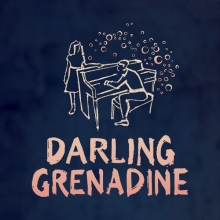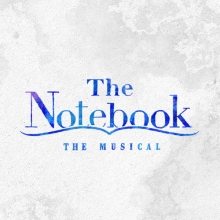Filichia Features: Attention, All Character Actors!

Filichia Features: Attention, All Character Actors!
Lord knows that there are plenty of roles in musical theater that demand character actors. Let’s alternate the sexes of the roles as we make our list: Miss Hannigan in Annie. Lefou in Disney’s Beauty and the Beast. The Old Lady in Candide. Mr. Applegate in Damn Yankees. And with these comic roles, we’re only 15% of our way through the alphabet.
Yes, character men and women do get to play heavies or villains, but much of the time, musical comedy asks them to provide the comedy – along with the music. So when you audition, you should have a good comedy song.
Aubrey Berg, who sits in the chair for musical theater at the University of Cincinnati-College Conservatory of Music, has auditioned tens of thousands in his long career at the top-rated school. He’s told me “I’m amazed at how many young women – seniors in high school, mind you – audition with ‘Always True to You in My Fashion’ from Kiss Me, Kate. It IS a wonderful song, of course, but it’s really for a woman who’s had much more experience with men than some of these teenagers. Besides, the song is now one of the most overdone.”
If you’re like most actors, you’ll worry that the person who’s going into that audition room just before you will sing the same song that you’ve chosen. And the day will indeed eventually come when the person who auditions before you will warble the same song you were about to do. The law of averages, after all, isn’t a theory, but a LAW.
So find something new! Don’t be one of those thousands of women who do “My New Philosophy” from You’re a Good Man, Charlie Brown or one of the millions of men who’ve chosen “Shiksa Goddess” from The Last Five Years. More than once when I’ve been walking down the hall outside of an audition room, I’ve seen a performer freak -- for just behind that closed door, someone is doing the song that this next-in-line person was to do.
So here’s a list of comedy songs that are a bit off the too-beaten track. The long-heard maxim is “It’s not enough that a song be great; it must be a great song for you.” If you hear ANY of these songs and you laugh (ideally, uncontrollably), well, then you’ve got a song that embraces your sense of humor. Because YOU find it funny, chances are you’ll know JUST how to land every one of its jokes when you sing it.
Granted, you may only be able to do eight, twelve or sixteen bars – and it IS true that lyricists save their best jokes for the end of the song. A good case-in-point: Lois Lane in “It’s Superman” starts out singing the establishing lyric: “Oh, how I wish I weren’t in love with Superman.” Ten lines later she adds “When will he learn it’s not some silly fly-by-night affair?” which is funny – but not as funny as the line Lee Adams wrote three lines from the end -- when Lois says she’d prefer “a man with both feet on the ground.”
But if you intrigue a director and staff enough, you just might get them to keep listening until you reach the ultimate punchline.
Some of these listed below were originally duets or group numbers, but all could be sung as solos either as is or with a word or two changed. You must NEVER do that in an actual performance of a musical, of course, but in an audition, to quote a Frank Loesser lyric from How to Succeed, “Well, really, what’s the harm?”
And while these songs were specifically written for men and women, there’s a fabulously successful series in New York called “Broadway Backwards” in which men sing women’s songs and vice versa. So why not try it in the audition room?
How about these?
“Miss Byrd” (Closer Than Ever). If you’re a thirty-something woman who doesn’t read as a va-va-va-voom sexpot – but know that you have inner gorgeousness -- look into this one.
“Something” (Upstairs at O’Neal's). You’ve probably heard Morales in A Chorus Line complain about the way her teacher Mr. Karp handled her. Here this middle-aged, long-suffering pedagogue gets to tell his side of the story.
“You Mustn’t Be Discouraged” (Fade Out-Fade In). This was actually a duet from two performers pretending to be ‘30s stars Shirley Temple and Bill “Bojangles” Robinson. It’s got a cheer-up melody, but the lyric wonderfully plays against it, insisting that “There’s always one step further down you can go.”
“Love in a New Tempo” (New Faces of 1968). We have had slow love songs, fast love songs, waltzes, mazurkas and tangos – but has anyone ever thought of singing a love song to a march? Yes, Ronny Graham did about 50 years ago. It starts out “I love you; why don’t you love me, too?” all set to a blazing Sousa-ish tune.
“And Her Mother Comes, Too” (John Murray Anderson’s Almanac). A young man has a fiancée whose mom just won’t leave them alone: “We lunch at Maxim’s, and her mother comes, too. How long a snack seems when her mother comes, too.” There’s a delightful little twist at the end, by the way.
“Makin’ Whoopee” (Whoopee). For 1928, an amazingly sardonic lyric, about a marriage that soon dissolves into trouble. There are plenty of fun rhymes, too.
“He Had Refinement” (A Tree Grows in Brooklyn). “Adelaide’s Lament” is often mentioned as the funniest comedy song of all time – but I wonder if those who say so have ever heard this one. A middle-aged woman remembers her favorite beau from her youth. See if you believe by song’s end that he had any refinement at all.
“Thousand Islands” (Angel in the Wings). It’s about a guy who finds his true love on one of Canada’s Thousand Islands, leaves, and then returns – only to realize that he can’t find which of the 1,000 she’s on! The B-section goes: “So I’m row-row-row-rowing up the River St. Lawrence, and I’m hollering ‘Florence! Where can you be?’”
“They Couldn’t Compare to You” (Out of this World). This is actually sung by Mercury of Greek mythological fame. Cole Porter wrote it in 1951, so there are a few then-topical references (“I attended Call Me Madam) and shortly began to nestle Essel [sic] Merman”). But there are many more classical ones: “Though I liked the Queen of Sheba, she was mentally an amoeba.”
“The Hooker,” “The Pusher” and “The Pickpocket” (Inner City). These are three separate songs all set to the same melody. Each of these urban types point out that John Q. Public is no better than they, claiming “You do it your way; I’ll do it mine, and that’s fine.” It sure is fine songwriting.
“Home, Sweet Heaven” (High Spirits). Here’s a great eleven o’clock number sung by a dead woman who returned to earth only to decide that she’s had enough down here. “I miss the love and laughter, rippling and the tippling, and Emily Brontë doing the Twist with Kipling.”
“Where Did Robinson Crusoe Go with Friday on Saturday Night?” (Robinson Crusoe, JR.). Yeah, they don’t write ‘em like this anymore!
“Hollywood, California” (The Act). The Southern California Chamber of Commerce won’t be endorsing this one, but Fred Ebb, auteur of “New York, New York,” certainly established his feelings about the other entertainment mecca: “My dear, the wedding was a joke. Miranda lit a joint under Rocco’s needlepoint, and the tent went up in smoke.”
And how do you get sheet music for these obscurities? That’s where Michael Lavine comes in. The gifted pianist and musical director is also one the great collectors of sheet music. In fact, whenever I have a question about a song or a lyric, I know whom to call. Lavine gives me the answer in no time flat.
That’s pretty impressive, considering that he has to plow through 30,000 songs -- not to be confused with the 750 scores of musicals - that live in his apartment. E-mail him at broadwaymhl@aol.com.
You may e-mail Peter at pfilichia@aol.com. Check out his weekly column each Monday at www.broadwayselect.com and Tuesday at www.masterworksbroadway.com. His book The Great Parade: Broadway’s Astonishing, Never-To-Be Forgotten 1963-1964 Season is now available at www.amazon.com.

























